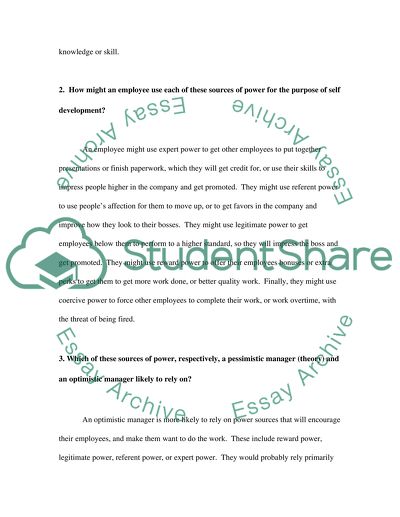Cite this document
(“Organizational Behaviour: The Sources of Power Available to the Assignment”, n.d.)
Organizational Behaviour: The Sources of Power Available to the Assignment. Retrieved from https://studentshare.org/human-resources/1527934-organizational-behaviour-essay
Organizational Behaviour: The Sources of Power Available to the Assignment. Retrieved from https://studentshare.org/human-resources/1527934-organizational-behaviour-essay
(Organizational Behaviour: The Sources of Power Available to the Assignment)
Organizational Behaviour: The Sources of Power Available to the Assignment. https://studentshare.org/human-resources/1527934-organizational-behaviour-essay.
Organizational Behaviour: The Sources of Power Available to the Assignment. https://studentshare.org/human-resources/1527934-organizational-behaviour-essay.
“Organizational Behaviour: The Sources of Power Available to the Assignment”, n.d. https://studentshare.org/human-resources/1527934-organizational-behaviour-essay.


